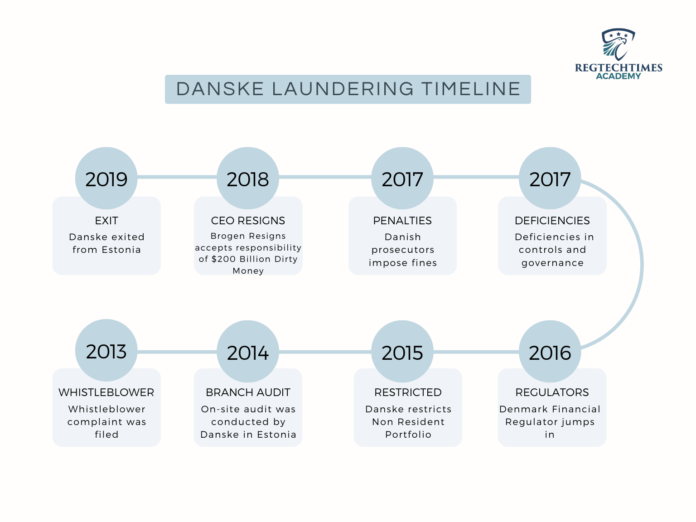The bank is being investigated in Denmark, Estonia, Britain, and the United States for over 200 billion euros ($229 billion) of suspicious payments through its Estonian branch between 2007 and 2015 and could face hefty fines.
Denmark’s largest bank said on Friday it had seen a fall in customer satisfaction both for retail and corporate clients and that it would spend up to 2 billion Danish crowns ($307 million) to step up anti-money laundering efforts, such as improving IT systems and hiring compliance staff.
IMF Litigation
IMF Litigation action will seek compensation for institutional shareholders who lost millions of euros in value as a result of perceived errors and omissions committed by the bank’s management and the bank’s failure to disclose to the market the circumstances and magnitude of alleged unlawful activities within its Estonian branch.
An investigation carried out by a law firm found red flags on “almost all” of the customers in the bank’s non-resident accounts, referring largely to Russian money, and that Danske Bank employees likely colluded with customers to avoid anti-money laundering controls.
The arrests come as former Danske Bank chief executive Thomas Borgen has set up his own management consultancy firm.
The former boss, who left the bank in September in the wake of the scandal, has set up the new firm in Denmark



